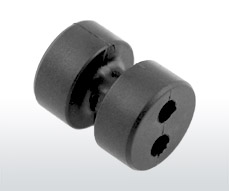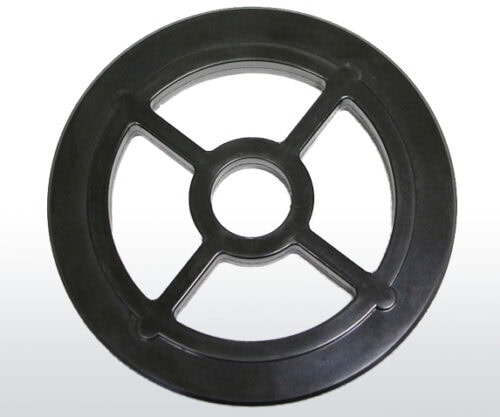Phenolic Molding
 Phenolics, or phenolic molding compounds, are a type of thermoset composite or plastic molding material. Phenolics have history dating back to the very first plastic, bakelite, that derived from Leo Baekeland in the early 1900s. Despite a long history, phenolics thermosets are still commonly molded today for various applications and end products. The physical properties of molded phenolics provide a molded part or component exceptional dielectric strength, electrical insulation, heat resistance, and chemical resistance. These properties allow phenolics to be molded for a variety of safety-critical components in Electrical, Automotive, and Industrial markets. In its raw state, phenolic is similar to thermoplastics such as nylons or ABS in a granular-like form, filled with glass fibers, minerals, or bead fillers dispersed within the resin. Molding wise, phenolics are generally injection molded, but can also be compression or transfer molded. Injection molding phenolics require the use of a molding machine with a screw and barrel to plasticize the material prior to injection.
Phenolics, or phenolic molding compounds, are a type of thermoset composite or plastic molding material. Phenolics have history dating back to the very first plastic, bakelite, that derived from Leo Baekeland in the early 1900s. Despite a long history, phenolics thermosets are still commonly molded today for various applications and end products. The physical properties of molded phenolics provide a molded part or component exceptional dielectric strength, electrical insulation, heat resistance, and chemical resistance. These properties allow phenolics to be molded for a variety of safety-critical components in Electrical, Automotive, and Industrial markets. In its raw state, phenolic is similar to thermoplastics such as nylons or ABS in a granular-like form, filled with glass fibers, minerals, or bead fillers dispersed within the resin. Molding wise, phenolics are generally injection molded, but can also be compression or transfer molded. Injection molding phenolics require the use of a molding machine with a screw and barrel to plasticize the material prior to injection.

Electrical components such as circuit breakers and breaker handles, terminal blocks, and electrical connectors are common applications molded from thermoset phenolics due to these desirable electrical properties, keeping the product assembly and components safe, even under a potential product failure. Automotive transmission and powertrain components utilize heat resistance and chemical resistance properties of phenolic for parts exposed to automotive fluids, oils, and grease. Likewise, the high temperature resistance allows phenolic molded parts to remain strong and durable even within applications experiencing high operating temperatures. Phenolic molding compounds are compounded by manufacturers such as Plenco, Sumitomo Bakelite, Durez, Vyncolit, and IDI Composites.


